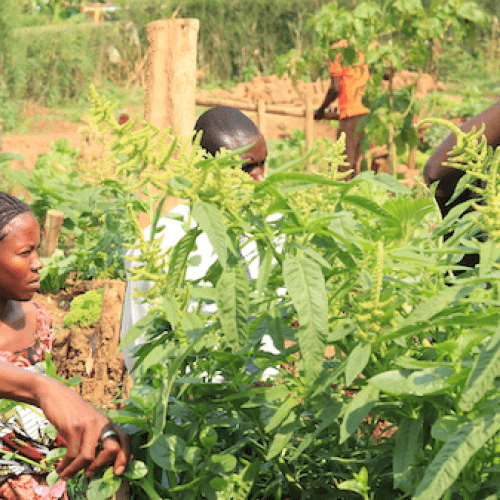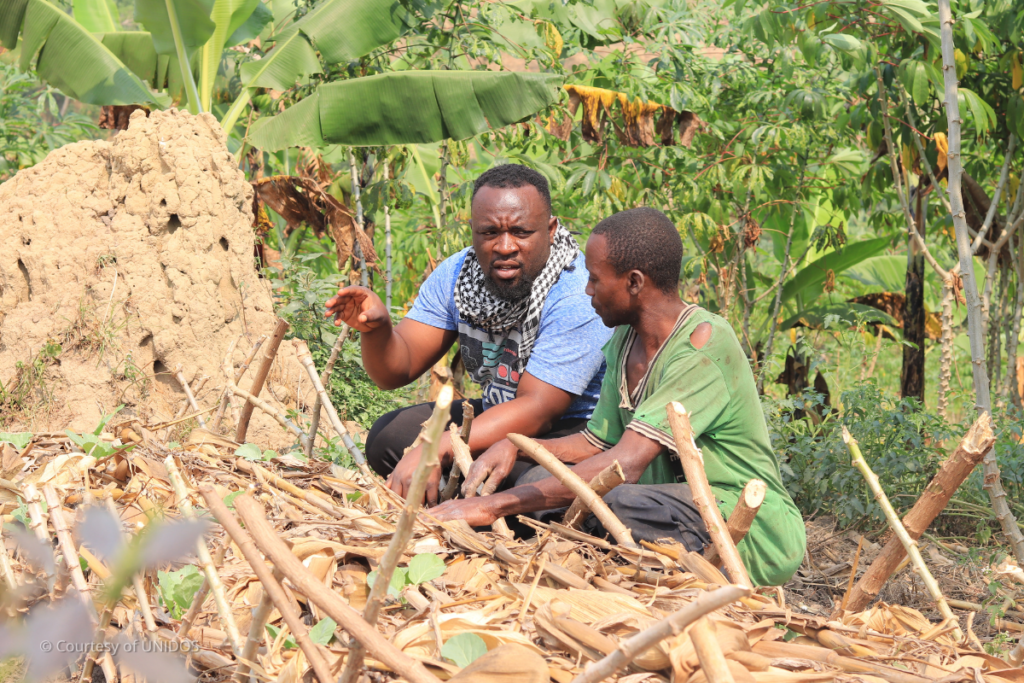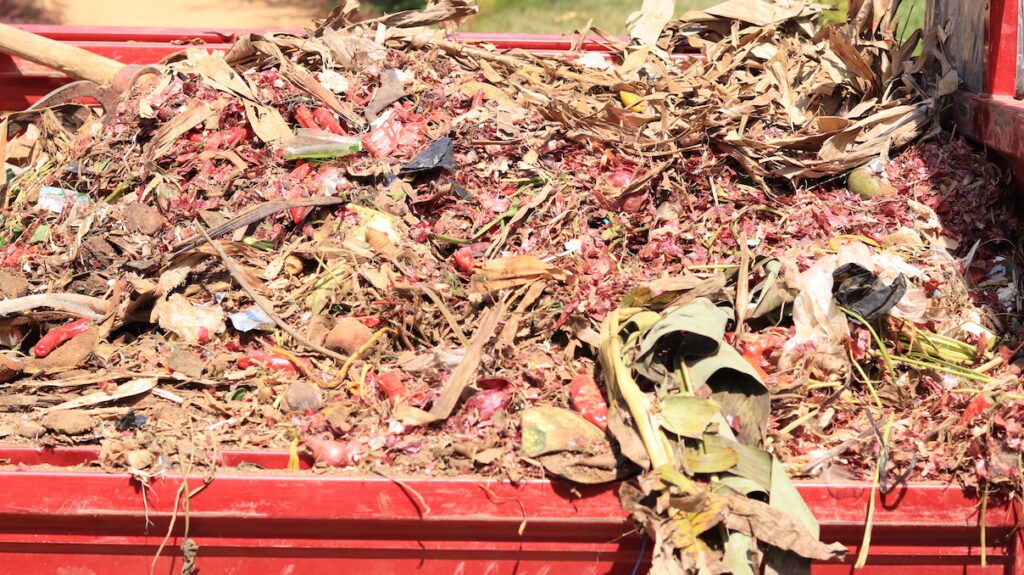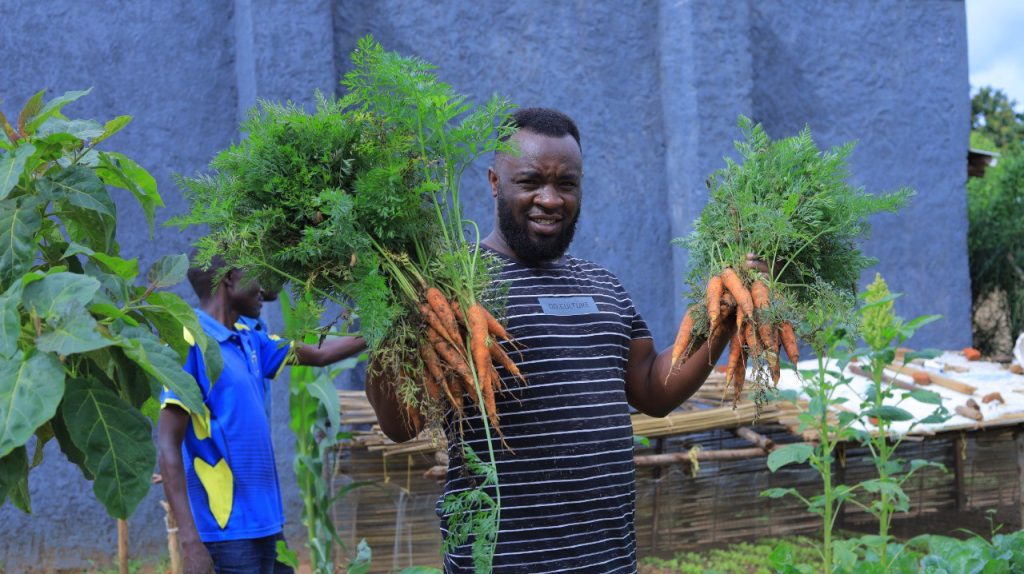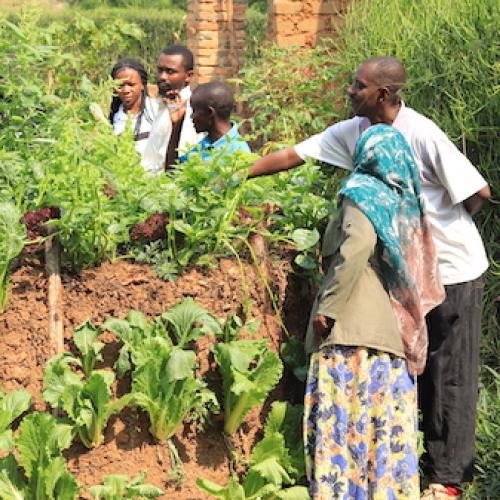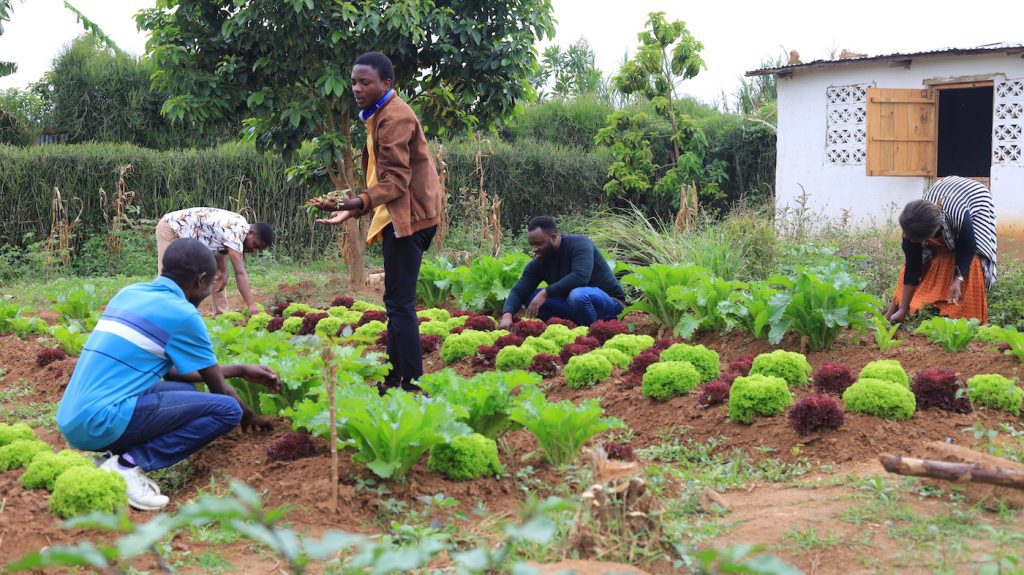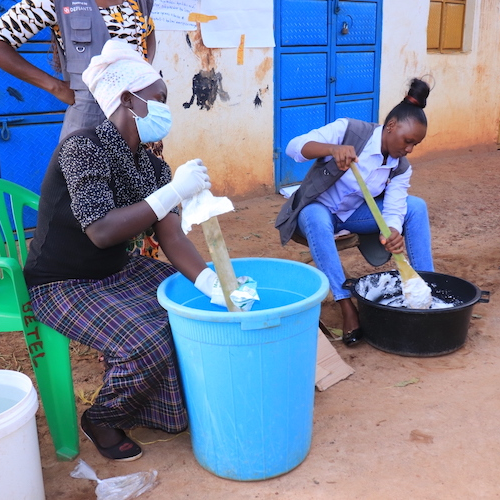Regenerative agriculture
Regenerative agriculture is a holistic approach where we involve all the elements to reach the optimum impact, which means activating the farmers, while teaching them how to regenerate the soil.
As refugees, we are mostly affected by poverty, climate change, war, and political suppression from our home countries. Since 2018 we have assembled together to help create livelihood-opportunities and food security in our community, after food rations were drastically reduced for refugees in Uganda.
Regeneration to us means to design human systems that co-evolve in relation with their natural environment, which in return generates mutual benefits, and a greater expression of a resilient life.
With shifting from dependency on organizations like the World Food Program we start taking care of the soil by applying worm compost, and planting trees to mitigate the change of our micro climates, creating an ideal environment to cultivate crops.
Our aim is to share this knowledge, and support as many farmers as possible to start creating their own worm composting systems, regenerating their land and food production methods.
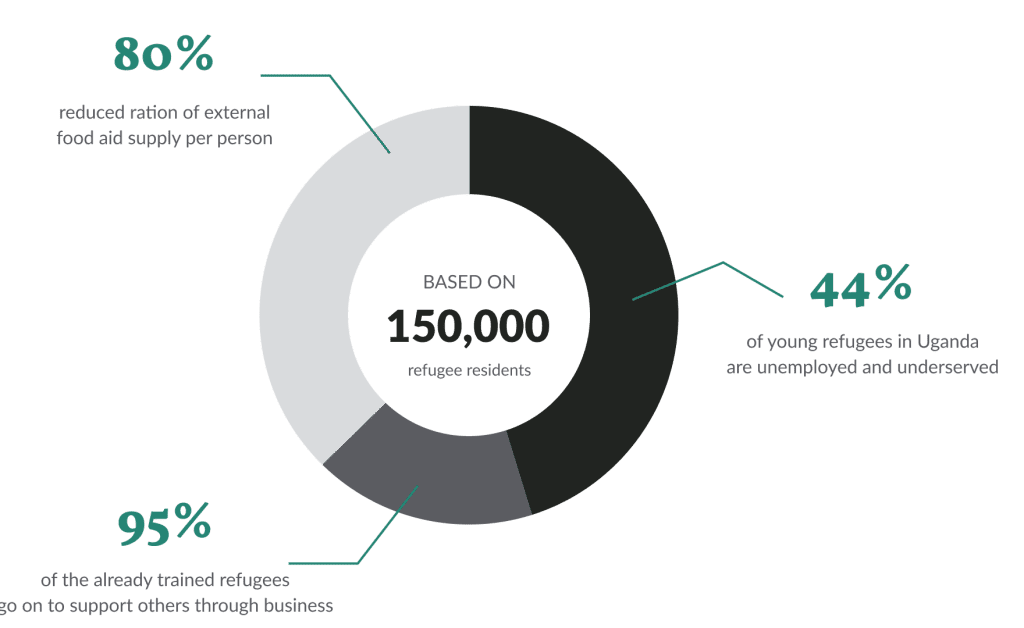
We can proudly boast of an over 20% food security improvement since the initial introduction of regenerative agricultural practices
Up to 75% of people that we train in regenerative practices go on to train others; ensuring that sustainability is well spread
Our regenerative techniques
Permaculture
As a way of thinkingness, our mindset is built on sustainable systems. By ensuring that we’re 100% reliant on the most natural ways of growing our food, we are reminded of our pledge to build more sustainable systems
Education of farmers
Training helps the farmers to think more sustainably and incorporate the latest regenerative methods and tools into their daily operations. This keeps everyone sharp, allowing for constant exponential growth that we all want to see
Composting methods
A lot of natural materials go to waste, so we’re on a mission to promote composting methods, which involves decomposing organic material into a humus-like material, known as compost, which is a good fertilizer for plants.
Ecological thinking
Regeneration helps us preserve the mindset of designing systems that evolve us in relation to the non-human aspects of our ecology
Water preservation
Training helps the farmers to think more sustainably and incorporate the latest regenerative methods and tools into their daily operations. This keeps everyone sharp, allowing for constant exponential growth that we all want to see
Activation of farmers
Our assignment is to promote conservation and crop diversity to encourage environmental and economic sustainability
Vertical farming
Our numbers keep growing daily, but our land spaces cannot be expected to grow accordingly over the years, so we plan to grow more vertically, which will allow for conservation in space, resulting in a higher crop yield per square foot of land used.
Soil regeneration
Old and poorly informed agricultural processes saw the mineral content of our soil deplete over time. Through the various regeneration methods, such as composting, we’ll over time be able to improve our soil texture and overall food security

